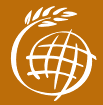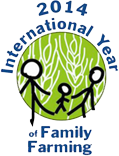Growing out of crises
In 2010 FAO focused attention on 22 countries in protracted crisis situations. People in such situations, in particular those in rural areas, suffer from extreme food insecurity. Undernourishment and hunger are chronic, most dramatically affecting the vulnerable, particularly women, children and the elderly.
GFAR stakeholders recognise that an immediate response to each protracted crisis is necessary. At the same time and in parallel, they recognise the need for commitment to rebuild institutions and capacities to address the underlying causes of crisis and find sustainable solutions for the long-term. AR4D is particularly vulnerable, with vital human and physical resources depleted and often lost. For example, in Iraq available research staff have declined by two-thirds since the 2003 war. Such losses compromise the capability to innovate now as well as the national potential in future.
FARA, ICARDA, AARINENA and other partners in GFAR at national and regional level launched “The Kigali Movement” in 2012 to call for the resource sharing and investment necessary for agricultural innovation in countries coming out of or still in crisis. FARA, the Government of Rwanda and the Global Forum sponsored the collective, multistakeholder assembly of AR4D practitioners as the majority of countries in protracted crisis situations are in Africa. There was agreement, inspired by ongoing experience, on basic measures to send researchers and other actors for innovation to affected countries through intra-regional collaboration, pool use of infrastructure at regional level, and offer training opportunities to professionals to rebuild capacity for affected countries.
West Asia and North Africa is the other region with multiple countries in protracted crisis. ICARDA has devoted its attention to sharing experience and providing expertise to rebuild agriculture in countries most affected by conflicts and natural disasters. GFAR is working in support of multistakeholder initiatives to re-establish systems at country level in the region.
Given the dimensions of these challenges, the Committee on World Food Security (CFS) has embarked with GFAR’s engagement on developing an “Agenda for Action for Addressing Food Insecurity in Protracted Crises” in 2013. The agenda will focus inter alia on country ownership and accountability, the supporting role of regional bodies to attain food security, the role of governance, and the contribution of local social institutions, civil society and the private sector in addressing underlying causes of protracted crisis situations.



